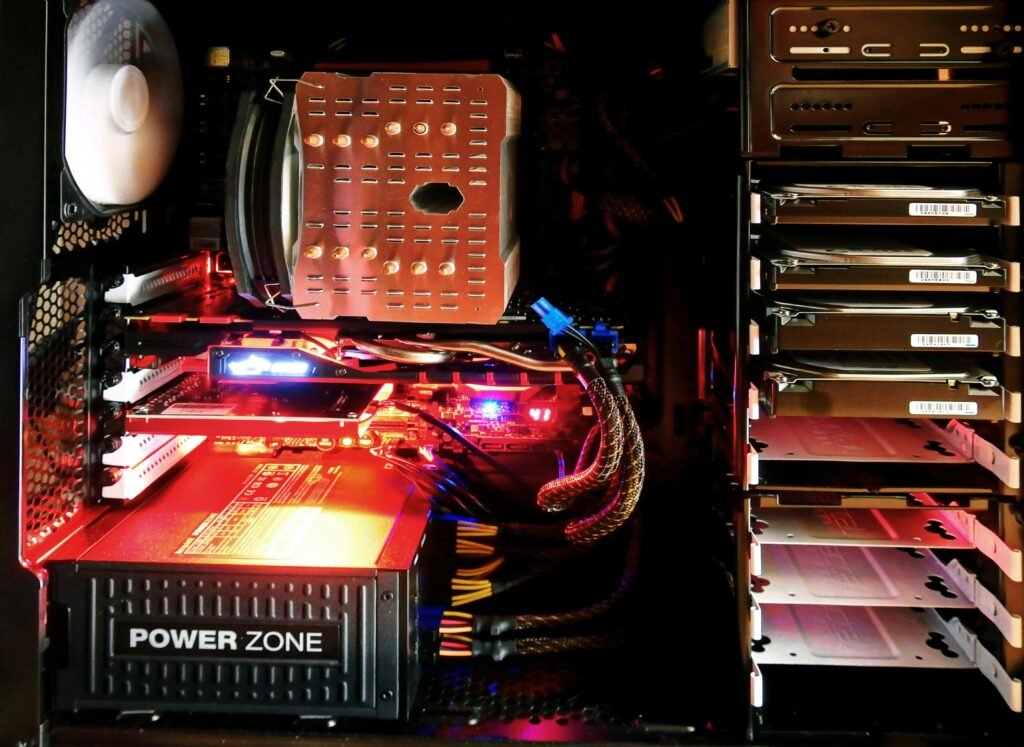
When it comes to modern computing, Graphics Processing Units (GPUs) have become one of the most vital components for both everyday users and professionals alike. But what exactly makes GPUs so important? Whether you’re a gamer looking for smoother frame rates, a designer aiming for sharper visuals, or a researcher working with complex data models, GPUs are at the heart of these experiences.
In recent years, the role of GPUs has expanded far beyond just powering video games. They now drive innovations in artificial intelligence (AI), machine learning, and even cryptocurrency mining. So, how did GPUs evolve to become such versatile workhorses in tech, and what should you know before making your next upgrade?
In this blog, we’ll break down everything from the core functions of GPUs to the latest trends shaping the future of this technology. Whether you’re new to the topic or looking to deepen your understanding, you’re in the right place. Ready to dive into the world of cutting-edge GPU technology? Let’s get started!
The Evolution of Graphics Processing Units (GPUs)
Have you ever wondered how Graphics Processing Units (GPUs) evolved from simple graphics enhancers to powerhouses of modern computing? It’s a fascinating journey that’s transformed not only how we experience visual content but also how we solve complex problems in fields like machine learning and data processing. Let’s take a closer look at how GPUs have changed over the years and the impact they’ve had on technology.
From Graphics to General Computing
Initially, GPUs were designed to do one thing really well: process graphics. Their primary function was to take the load off the CPU when rendering images, enabling smoother performance in video games and graphic design. However, as technology advanced, so did the versatility of GPUs. Today, they handle much more than just graphics:
- AI and Machine Learning: GPUs excel at parallel processing, which allows them to quickly analyze large datasets, making them ideal for AI tasks.
- Video Rendering: Whether it’s 4K video editing or complex animation, modern GPUs accelerate rendering times significantly.
- Blockchain and Cryptocurrency Mining: The rise of cryptocurrencies has turned GPUs into essential tools for mining, thanks to their ability to perform repetitive calculations efficiently.
Why Are GPUs So Important Now?
You might ask, “Why should I care about GPU advancements if I’m not a gamer?” The truth is, GPUs are embedded in almost every aspect of modern technology. Here’s why they matter more than ever:
- Performance Boosts: From faster loading times in applications to better multitasking, GPUs have become essential for increasing overall system performance.
- Cutting-Edge Tech: Technologies like virtual reality (VR) and augmented reality (AR) heavily depend on powerful GPUs to provide immersive experiences.
- Energy Efficiency: Newer GPUs are designed with energy efficiency in mind, offering better performance without significantly increasing power consumption.
What to Look for in a GPU?
When shopping for a GPU, the choices can be overwhelming. Should you focus on clock speed, memory, or the number of cores? Here are a few factors to consider based on your needs:
- Gaming: Look for high frame rates, ray tracing capabilities, and enough memory to handle the latest AAA titles.
- Content Creation: You’ll want a GPU with robust video editing and 3D rendering support.
- AI and Data Science: Choose a GPU optimized for parallel processing to accelerate computations in AI and machine learning tasks.
In short, GPUs are no longer just for gamers. They’ve become an essential tool in many industries, changing the way we work and innovate. So, the next time you upgrade your system, think about how a better GPU could improve your experience, no matter what you’re using your computer for.
Ready to explore the possibilities of modern GPUs? Keep reading to find out what’s next in the world of cutting-edge graphics technology!
Conclusion
As we’ve explored, Graphics Processing Units (GPUs) are no longer just about enhancing your gaming experience; they’ve become central to innovations in fields like artificial intelligence and machine learning, as well as everyday computing tasks. Whether you’re looking to boost your system’s performance for content creation, gaming, or data analysis, investing in a high-quality GPU can make a significant difference.
So, what’s next for you? Are you ready to leverage the power of modern GPUs to enhance your workflow, improve your gaming setup, or dive into the world of parallel computing? The right GPU could be the key to unlocking new possibilities, whether you’re a tech enthusiast, a professional, or someone simply looking to future-proof your system.
Keep in mind that the rapid advancements in GPU technology mean that staying informed is essential. Don’t just settle for the basics—explore the cutting-edge features and capabilities that could transform the way you interact with technology.
Whatever your needs may be, the world of GPUs is evolving quickly, and now is the perfect time to take advantage of these advancements. Ready to upgrade? Stay curious, stay informed, and make your next GPU choice with confidence!
4o

